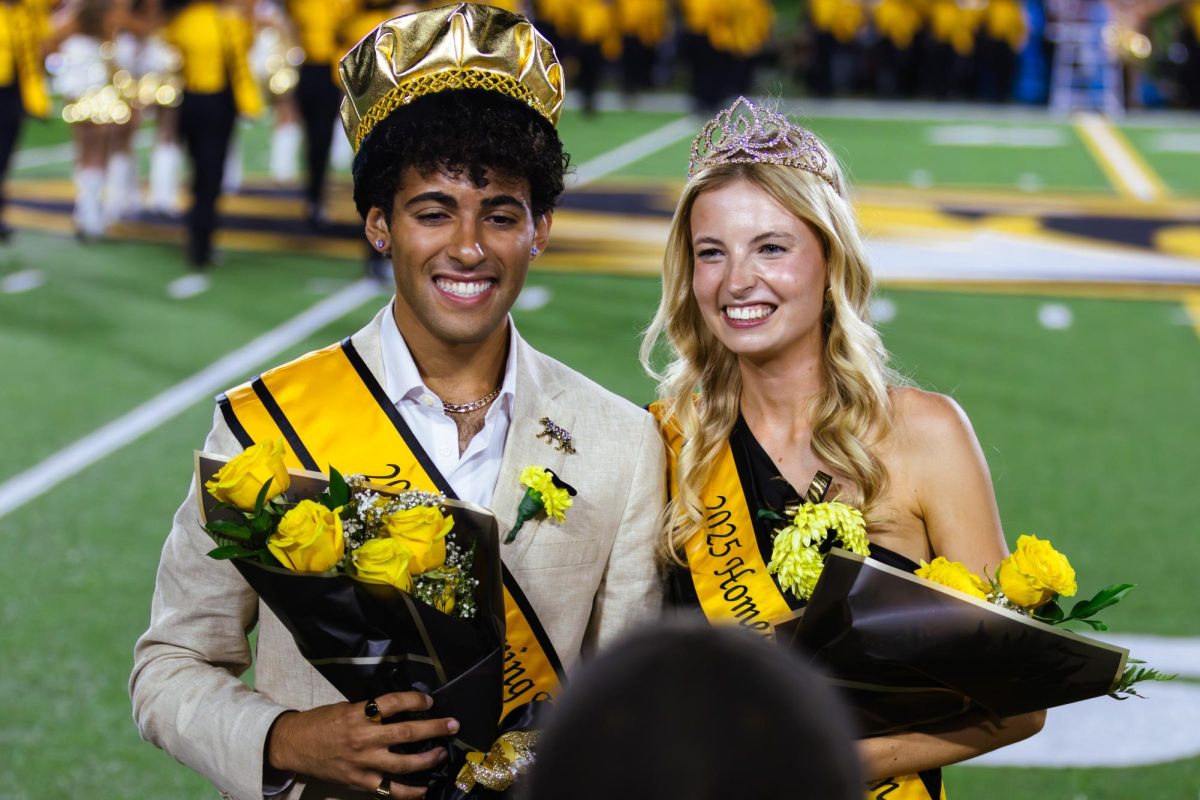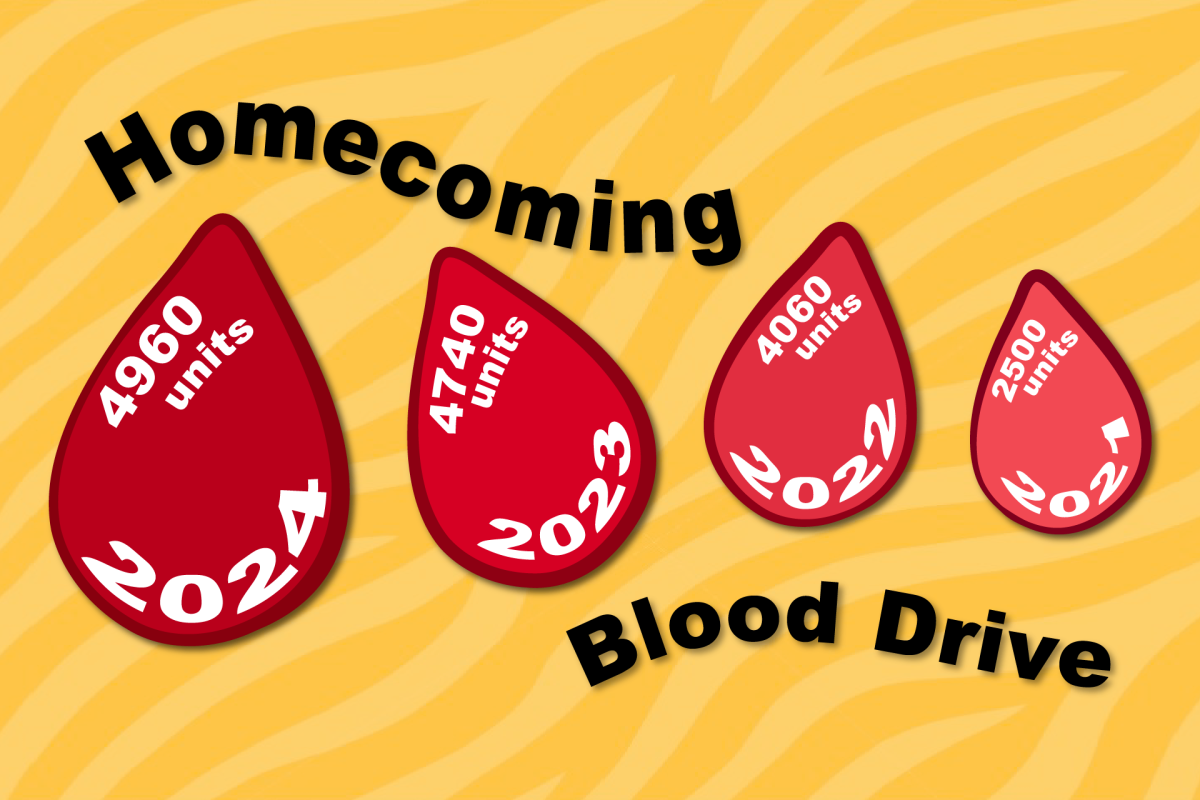In light of recent tensions on campus, Four Front Co-Chairwoman Alanna Diggs and Residence Halls Association President Billy Donley agreed that whether students agree with what has happened, they need to be supportive of their fellow classmates.
“(Ally Week) addresses a problem before it boils up, kind of like what happened the last couple weeks,” Diggs said. “If there were more allies, maybe this wouldn’t happen.”
The two came together to organize Allyship Week, which was held during the week of Nov. 16, and hosted by the Multicultural Center and Four Front to spread awareness of the need for allyship on MU’s campus. The week included four events: “Slacktivism or Nah?,” “#AnAllyIs Whiteboard Challenge,” “#AlliesSpeak Film Screening” and “Allyship: Are We in the Same Boat?”
Senior Gabriel Riekhof, who attended “Allyship: Are We in the Same Boat?”, and Diggs both said the campus needs people to actively work to understand and support people who are different than them.
“I’d like to see people reaching out to these communities they’ve never been in and to learn from them, to use their privilege in a way that affects change because every issue that happens on this campus affects all of us,” Diggs said. “We all have the power to change it, so I’d like to see students taking initiative and using the power that they have in a way that’s productive.”
Riekhof said he recognizes people are naturally going to gravitate toward people similar to them.
“The only way, by nature, to interact with people that are unlike you is to be intentional about it,” Riekhof said. “That starts by understanding that you do have things to learn from everyone else outside and inside your majority status, but it also starts with recognizing that because every single person has different backgrounds and different experiences, they have something to contribute to you that you haven’t thought about before.”
The discussion “Slacktivism or Nah” was held Nov. 16 in the Multicultural Center. Diggs defined slacktivism as “an attempt to recognize privilege as a way of negating responsibility.” The discussion included a presentation to help guide the conversation. The purpose of the event was to bring awareness about what “slacktivism” is and how to prevent doing it in the future.
“I hope that with everything that has been happening on this campus that people can recognize how to support each other in a way that is going to cause change and that people will recognize that when one of us is elevated, we are all elevated,” Diggs said.
During the discussion, some examples of “slacktivism” included using the French flag filter on Facebook profile pictures in response to the Paris [terror attacks](https://www.themaneater.com/stories/2015/11/17/mu-students-faculty-and-community-members-join-can/), as it does not directly benefit those affected by the tragedy.
“I think (‘slacktivism’) is a very new thing, and people don’t realize it because they don’t want to recognize that what they’re doing isn’t causing as much change as they might hope it is,” Diggs said. “I think it takes a lot of introspection to recognize when ‘slacktivism’ is occurring in your life.”
The film “Allies Speak” was shown Nov. 17 and was created by senior Young Kwon, a former Four Front co-chairwoman. In the film, MU students shared their experiences of discrimination on campus and discussed the qualities of an ally and supporting minority groups.
“We went through an intense year,” Kwon said. “We videotaped this last semester. We thought it would be a nice way to open up the discussion about allyship.”
Senior Andrew Abarca, member of Latino fraternity Lambda Theta Phi, appeared in the film and said he wanted to share his experiences to give people a better understanding of what different communities face and how to be a better ally.
“I think it was very crucial not just for Latinos to share their experiences, but also to tell (people) what an ally is, because it’s a word that’s thrown around a lot, just like diversity is thrown around a lot, but they don’t fully understand what it means to be an ally,” Abarca said.
Diggs and Donley both said allyship is hard to define.
“You get to learn and see their general ideas of what an ally means,” Donley said. “When somebody is saying an ally is doing this, an ally is doing that, you get a chance to learn those other perspectives as well. Maybe for someone who really doesn’t know how to be an active ally, this is something we can really learn from as well.”
On Nov. 18, #AnAllyIs Whiteboard Challenge was held on the main floor of the Student Center. Donley said that this event allowed people to share their interpretation of what they believe an ally is.
“Allyship is a lot of things,” Donley said. “That’s kind of what this whiteboard challenge is about, it’s called #AnAllyIs because everybody kind of has their different perspectives and ideas about what an ally is.”
During “Allyship: Are We in the Same Boat?”, Diversity Peer Educators facilitated a session that forced participants to look deeper into their identities and challenge stereotypes and discrimination they face.
DPE facilitators gave each group 30 seconds to answer three questions: “What are things you never want to hear about this group again?,” “How can others be an ally to your identity?” and “What makes you proud to be a part of this group?”
When a few questions were asked, people who self-identified within this group would say nothing, as they let the 30 seconds pass. Riekhof, who self-identified as white, chose not to answer the question, “What makes you proud to be a part of this group?”
Riekhof said that it was hard for him to see around the marginalization of students and focus on the positive. He believed the event should focus on minority students because as someone who identifies with the majority in social class, sexual orientation and ethnic group, he has not dealt with oppression.
“I think that this event should be more about the fact that there are humans who feel marginalized and that this is a legitimate feeling that they have,” Riekhof said. “We need to work together to build a more common understanding of each other and I think that came through with the activity, that that was a common answer, that we need to be understanding and be a better ally for each other. All of us, all of these groups, not just from a majority to all the minorities but even the minority groups to other minority groups.”







